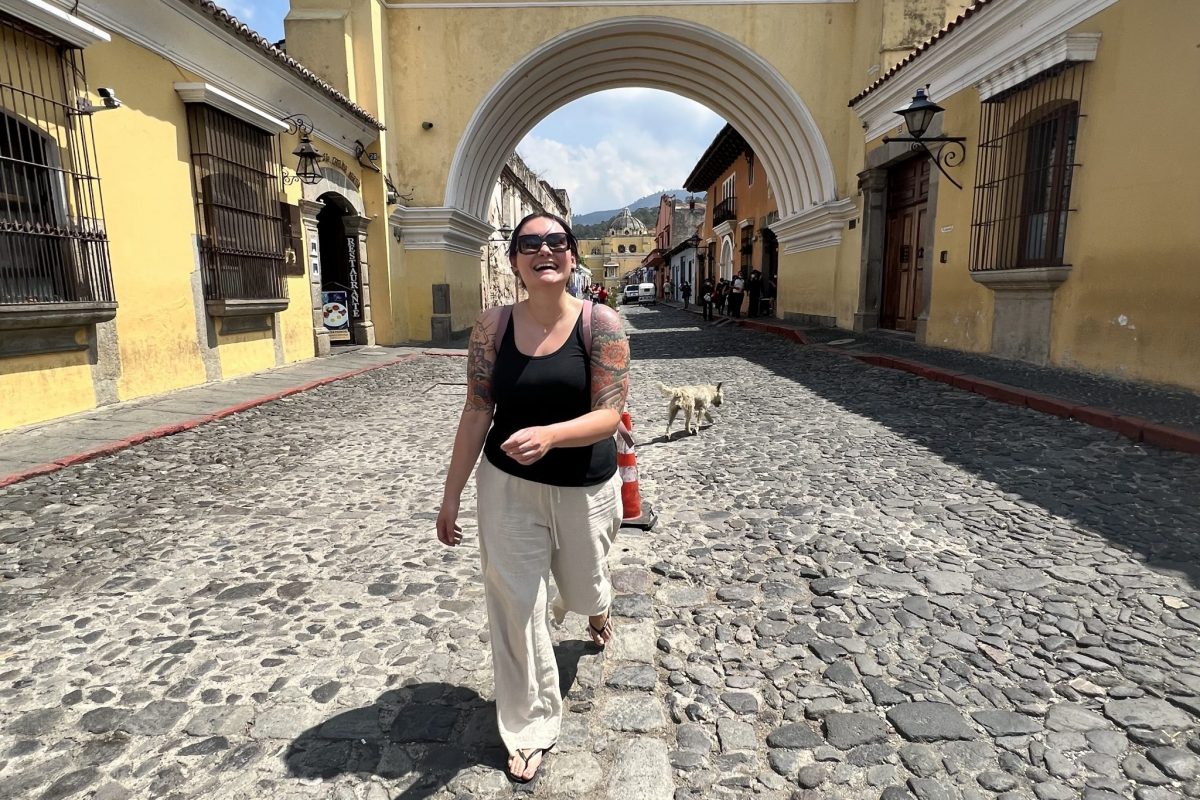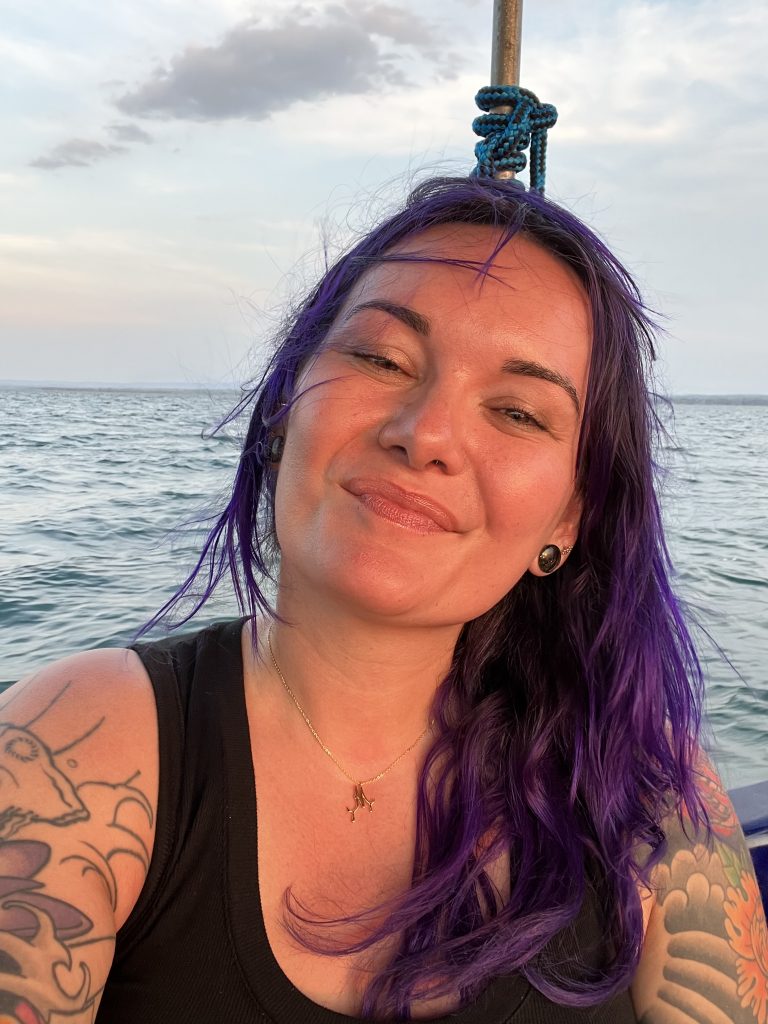Becoming a Fora Travel Advisor as a Side Hustle During a Summer of Airline Chaos

Skift Take
Morgan Pesce, a full-time social media specialist and travel and lifestyle blogger in Rhode Island, reached out to Fora Travel in March about becoming a part-time travel advisor. After a video onboarding call, and learning about the startup travel agency's support resources, Pesce booked four trips in April for friends, other people in her network, and herself.
Her commission checks arrived a couple of weeks after the trips.
"It was their mission that spoke to me," said Pesce, 37, referring to Fora Travel, adding she's contacted travel agencies before but didn't like their "big box, cookie-cutter approach," replete with Marriott stays and cruises.
Fora Travel's mission is to reinvent the travel agency and the role of travel agents, offering passionate travelers side hustles as travel advisors and perks for their travels, and commission checks paid lickety-split with very modest training before they begin booking trips. Fora Travel has $18.5 million in venture funding — something you don't see very often with travel agencies — and doesn't see any reason why it can't add 100,000 travel advisors to its ranks in a relatively short period of time.
Skift has written a bit already about Fora Travel, which was founded last year, but we wanted to find out more about its business model, especially because there have in the past been several multilevel marketing schemes where companies offer people who know nothing about the travel business perks for their own travels, and fees when they get their friends to sign up — and so on.
Hotel Commissions and Membership Fees
Evan Frank, former CEO and co-founder of Onefinestay and co-founder of Fora Travel, told Skift Fora Travel's business model will revolve around hotel commissions and trips, but will eventually charge a membership fee for travel advisors, and currently offers a $200 referral when advisors sign up travel agents, and they make bookings. Frank co-founded Fora Travel with Henley Vasquez, former CEO and co-founder of Passported, and Jake Peters, former CEO of PayPerks.
"By the way, our best advisors come by a referral," said Frank, who was speaking from the Virtuoso conference in Las Vegas a couple of weeks ago. "We don't want to clip that channel and turn that off. But by and large, we're not looking to become some form of a multilevel marketing-driven company. We are really focused on our revenue model being driven by demand, by trips."
Veteran travel advisors would be aghast at newbies just diving into the job. These long-time professionals are well-versed in umpteen numbers of fare classes, global distribution desktop scripts, services fees and taxes, gnarly debit memos from the airlines, and rescuing waylaid and irate clients in faraway airports, and many have taken a nine-lesson course over three months and pledge to abide by a 12-point code of ethics on the way to getting an American Society of Travel Advisors verified travel advisor certification, for example.
Business in a Box?
Fora Travel is looking to disrupt all that with streamlined training and by providing travel advisor recruits with a "business in a box."
Frank of Fora Travel said the agency is "unique" in currently not charging advisors a fee to join, but that will change. "The reason is we really wanted to iron out our training, our operational onboarding, and the overall business in a box, the product experience that we're giving our advisors, before we started charging them money to be part of it," Frank said. "But the infrastructure, as you know, is expensive to run. We are going to need to charge some sort of a fee for advisors."
Don't Book Flights
But how would advisors just booking their first trips handle all the flight cancellations, lost luggage, and all of the inconveniences that have tarnished the travel experience for travelers around the world in recent months?
That's seemingly easy: Don't book flights.
"I think the more flights you do, the more you're being woken up at 2 a.m., which is one of the reasons why we try not to focus that much on flights," Frank said. "I think if you focus on ground- and hotel-driven travel, it's much more compatible to be able to do this while also supporting other jobs, freelance gigs, or whatever."
Pesce, the Fora Travel advisor who started her side hustle in April, booked three trips that month to Central America — including her own trip to Guatemala — and one to the Florida Keys.
Pesce said she doesn't typically book flights — although Flora Travel agents can do so through the agency's partners — and she can give clients recommendations.
The new Fora Travel advisor said she learned about the agency through its Instagram posts, and wouldn't be interested "if you have to pay to work for them."
Fora Travel doesn't have its own booking system yet so its agents mostly book directly on hotel websites, although Frank said the agency is building a booking system powered by a global distribution system.
Pesce said she's consulted with clients on video calls, through direct messages and email to find out their preferences. She's primarily booked their lodging, and as a Fora Travel advisor she's got them and herself for her own trips perks such as early check-in and late-checkout, bottles of wine upon arrival, and a $200 resort credit, for example.
Fora Travel, which is a host agency enabling home-based independent contractors to sign up as agents, says it's "not uncommon for hard-working travel agents to earn six-figure incomes." It also states it can offer travel agents and their clients "upgrades & perks at nearly 4,000 hotels," including Four Seasons, and Design Hotels.
As a member of the Virtuoso agency group, Fora Travel agents can also get the perks that Virtuoso can wrangle from partners. Fora Travel has around 500 travel advisors registered since its recruiting started earlier this year, has around 200 who are active, and has a waiting list to enroll, the company said.
Pesce said Fora Travel has a database she can access when she has questions, the training has been ongoing, and she can interact online with a "great" community of more experienced advisors.
"I have been fortunate so far that there haven't been any issues," Pesce said.
Where Will This Side Hustle Go?
She's keeping her full-time job as a social media consultant for now while working perhaps a dozen hours per week, depending on how many trips she has going, as a travel advisor. Pesce said she would consider becoming a travel advisor full-time if she can build up her client roster.
"Traveling is my favorite thing in the world and to help other people to do it is amazing," Pesce said.
A spokesperson for the American Society of Travel Advisors said the group has seen renewed interest in the travel advisor profession.
"However, determining the success, or the viability, of any one business model or industry innovation is not in ASTA’s purview," the spokesperson said. "The knowledge and expertise of a vast and complex travel ecosystem are the primary elements of a successful travel advisor and their agency business."
While not commenting on Fora Travel and its advisors specifically, the American Society of Travel Advisors spokesperson seemed to be expressing caution about the venture: "Claiming expertise that is not possessed or promising service that is not delivered only hurts the industry’s reputation and endangers the trust that travel advisors have earned through decades of professional service to their clients."
Frank of Fora Travel said the agency would be issuing certificates to its advisors.
It will be up to Pesce and the growing number of Fora Travel advisors to determine just how much that certification is worth.






